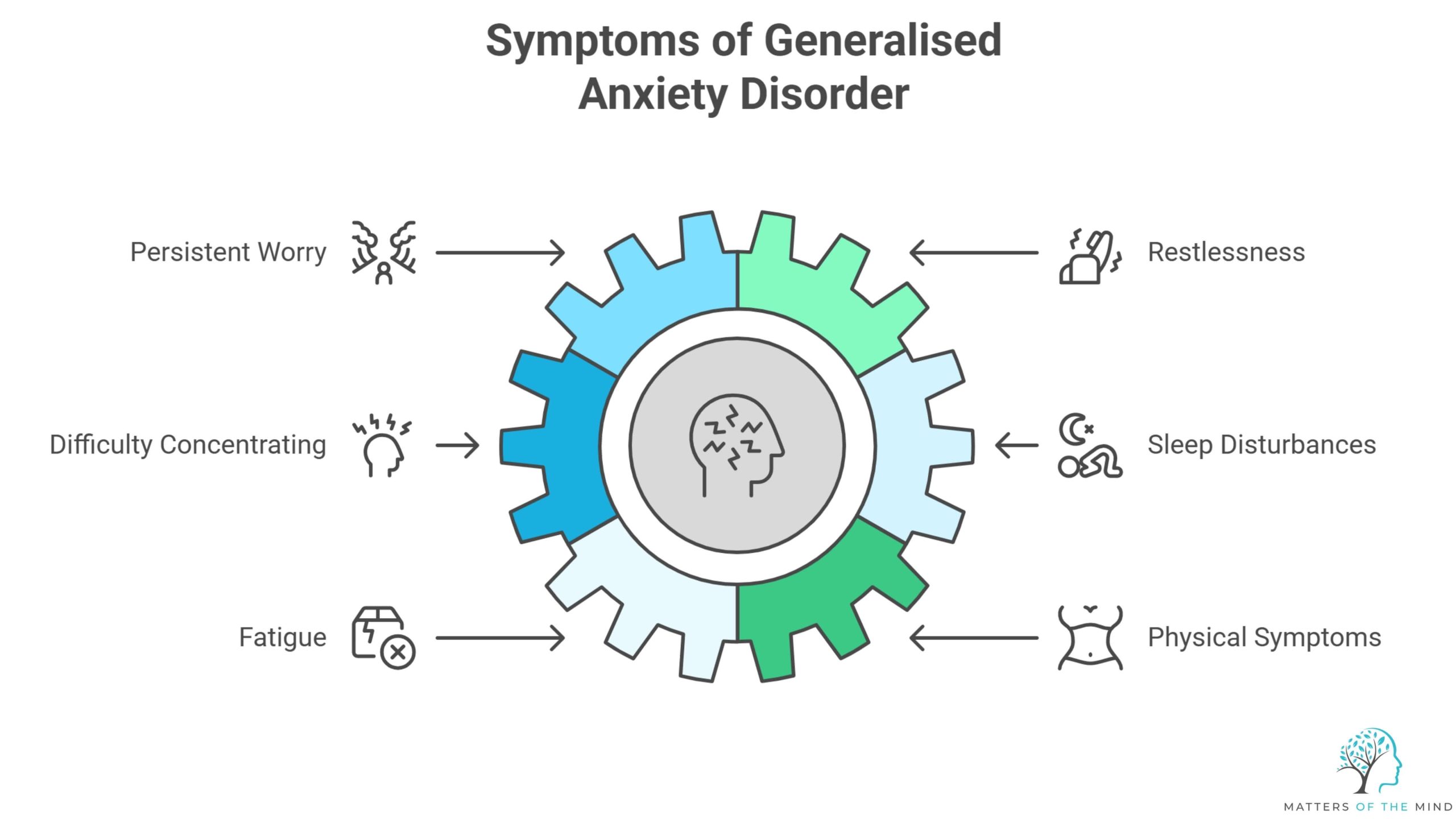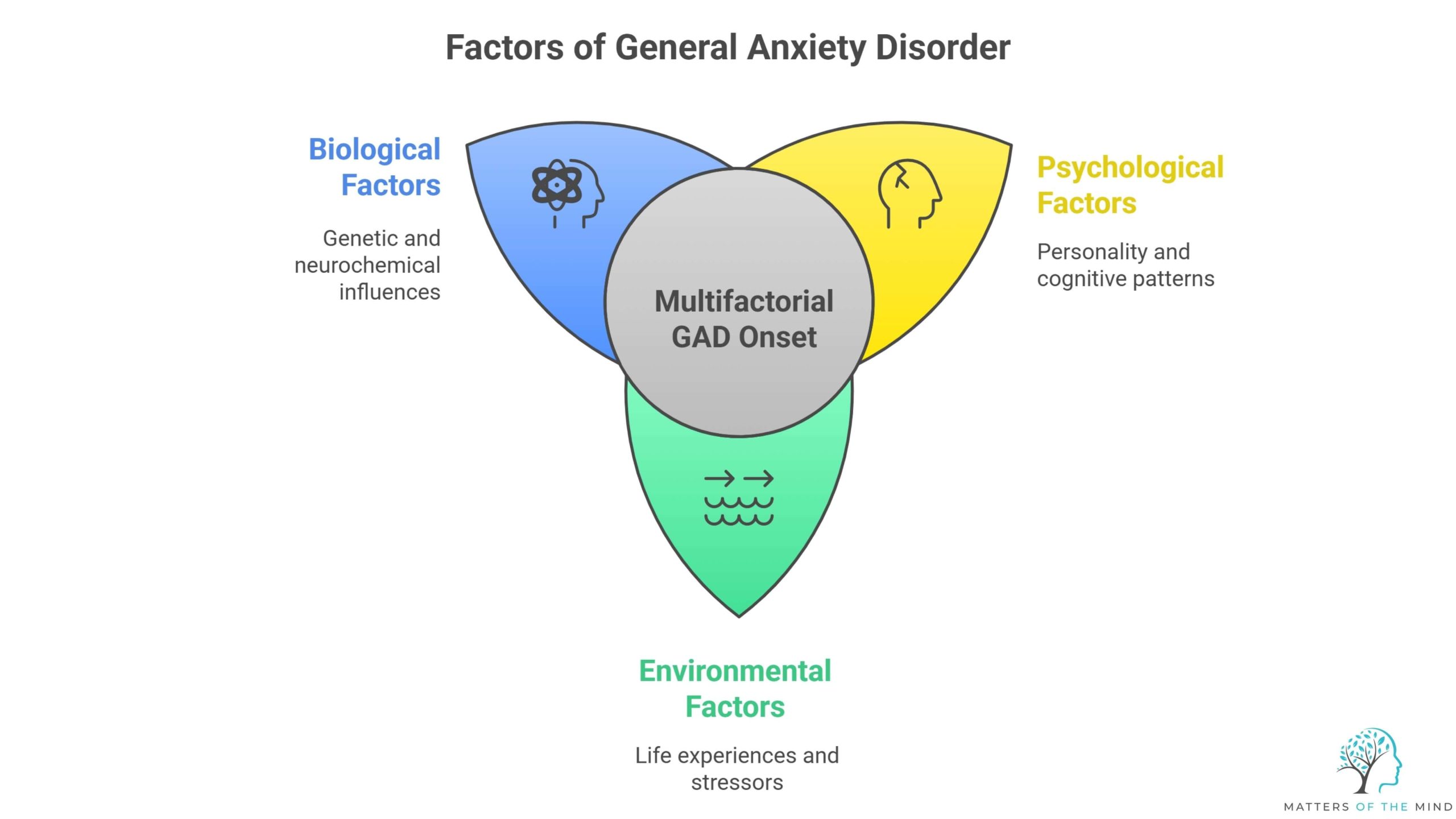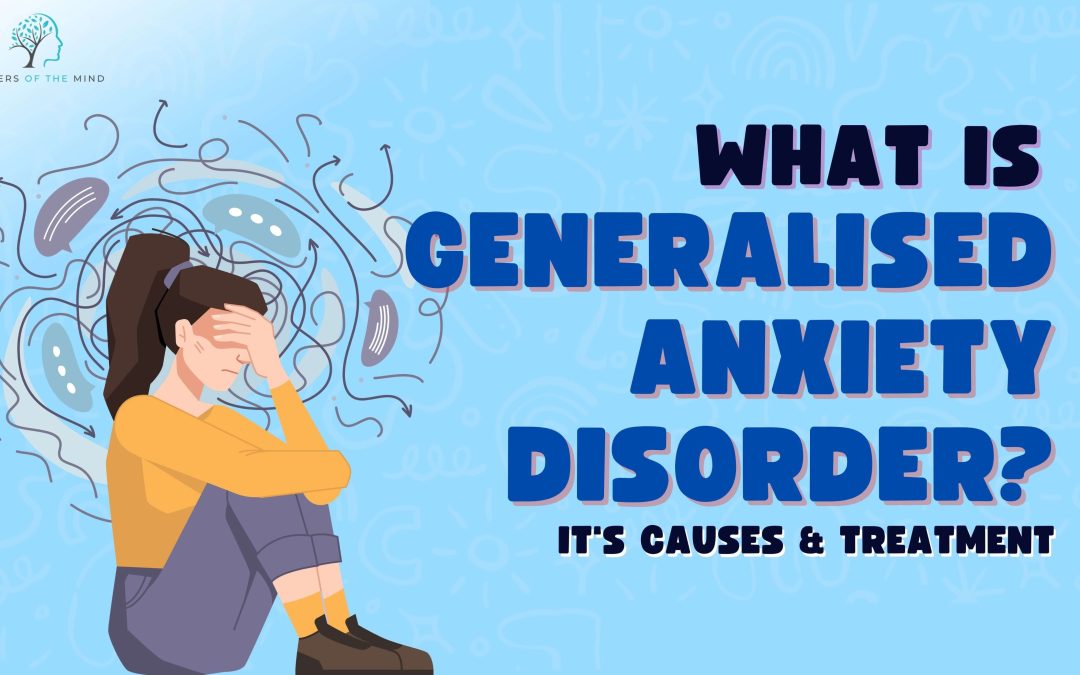What is Generalised Anxiety Disorder?
Common Symptoms of GAD

- Persistent worry that feels out of proportion to actual events
- Restlessness or feeling on edge
- Difficulty concentrating or staying focused
- Sleep disturbances
- Fatigue despite adequate rest
- Physical symptoms such as muscle tension, headaches, or stomach discomfort
What Causes General Anxiety Disorder?

1. Biological factors
- Genetics: Individuals with a family history of anxiety disorders are more likely to develop GAD.
- Brain Chemistry: Imbalances in neurotransmitters such as serotonin and dopamine may contribute to heightened anxiety responses.
2. Psychological factors
- Personality traits: People who are naturally more cautious, self-critical, or perfectionistic may be more vulnerable to GAD.
- Thinking patterns: Those who tend to overthink, expect the worst, or struggle to manage uncertainty often experience more intense anxiety.
3. Environmental factors
- Stressful life events: Trauma, loss, or chronic stress can trigger or worsen anxiety symptoms.
- Childhood experiences: Growing up in an environment where worry, unpredictability, or criticism was common may increase risk later in life.
- Lifestyle factors: Poor sleep, lack of exercise, and excessive caffeine or alcohol consumption can intensify symptoms.
The Impact of Generalised Anxiety Disorder
Effective Treatment Approaches for GAD

1. Cognitive behavioural therapy
- Recognise patterns of negative thinking
- Challenge irrational or exaggerated fears
- Replace worry-driven thought cycles with healthier, more balanced perspectives
- Learn relaxation and coping techniques to manage anxiety in the moment
2. Medication
In some cases, medication may be prescribed alongside therapy. Antidepressants (such as SSRIs) or anti-anxiety medications can help regulate brain chemistry and reduce symptoms. Medication is usually considered when anxiety is significantly interfering with daily life.
3. Lifestyle changes
- Regular exercise: Physical activity helps release tension and supports overall mental health.
- Balanced diet: Reducing caffeine and alcohol can lessen symptoms of anxiety.
- Sleep hygiene: Prioritising consistent, quality rest is essential for emotional stability.
- Relaxation practices: Techniques such as deep breathing, mindfulness, and meditation can help calm the nervous system.
4. Support systems
Living Beyond GAD
Final Thoughts
Generalised Anxiety Disorder (GAD) is a common yet often misunderstood condition. While it may feel overwhelming, it is not something that has to define your life. With evidence-based treatments like Cognitive Behavioural Therapy (CBT), lifestyle adjustments, and the right support, it is possible to reduce symptoms and live a fulfilling, balanced life.
If you or someone you know is struggling with persistent worry or anxiety, professional support can make a world of difference. Dr Kavita Deepak-Knights, based in Windsor, Berkshire, offers dedicated psychological sessions to help individuals navigate challenges with care and evidence-based guidance. Reach out today to take that first step towards calm and balance.


